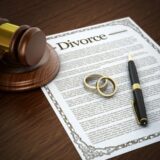Even minor car accidents can be unpleasant experiences. Those that leave you with damages to your car, or worse still medical bills, can lead to all sorts of stress as insurance companies get involved and may try their hardest to limit your claim. You can save yourself a whole lot of hassle by taking the right steps from the very start of the issue. Here is a quick guide as to what you need to know.
Immediate action
Stop and turn on your hazard lights. If you have a hazard triangle, put that out. Check yourself for injuries and if necessary go and see if anyone else needs immediate medical assistance. If so, do what you can to help. This may be anything from offering them the use of your first aid kit to calling emergency services.
Hopefully, there will be no injuries, or at worst, only minor ones and you can proceed to check for damage to your vehicle. In particular check for anything which might make it unsafe for you to drive it.
Once you have assessed the situation, take pictures of anything which could possibly be relevant, especially injuries to yourself or anyone else and damage to the vehicle (and the license plates of any other vehicle involved) and also anything which could give context to the situation, for example, skid marks. At this point, you could move to a safer spot if necessary.
Exchange names, contact details, license numbers and insurance information with all involved drivers, and get the contact information for any witnesses. Decide whether the police need to be called immediately.
Reporting the incident
In principle, it’s best to call the police from the scene of the accident and let them decide whether or not they feel like they need to attend the scene. If it’s a minor incident then the chances are that they won’t bother but that will be their decision rather than yours. This approach ensures that you stay in compliance with reporting laws that can vary from state to state.
If you do not report the accident from the scene, then you should do so within 24 hours (in some states this is the law). You also need to notify your insurer, preferably within 48 hours (at most within 72 hours) regardless of whether or not you believe that they will need to take any action as a result of it. If you are contacted by the other party’s insurance company then you are under no obligation to talk to them (other than to confirm the details exchanged at the scene). If they ask for anything else, refer them to your insurer or your lawyer.
Finding a good auto accident lawyer
A good auto accident lawyer can help you recover money for damages to your vehicle and medical expenses (both current and future). They may even be able to win you punitive damages to compensate you for your suffering. You may be lucky enough to know a good auto accident lawyer or, probably more likely, to know someone who can recommend you a good auto accident lawyer but otherwise, you’ll need to look online to find one.
Lawyer Match has researched the best auto accident lawyers in the Toronto, Vancouver area to save you money, time and stress. That way you can focus on what really matters in your life (like getting better) and leave your auto accident attorney to focus on getting you the damages you deserve. Lawyer Match only lists bona fide, reputable auto accident attorneys who are dedicated to getting the best deal for you!

